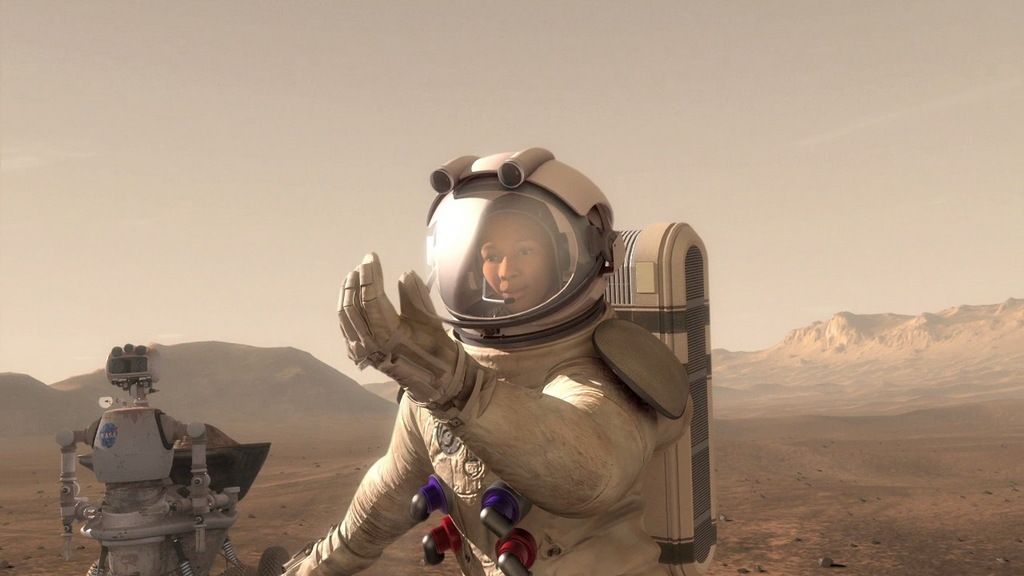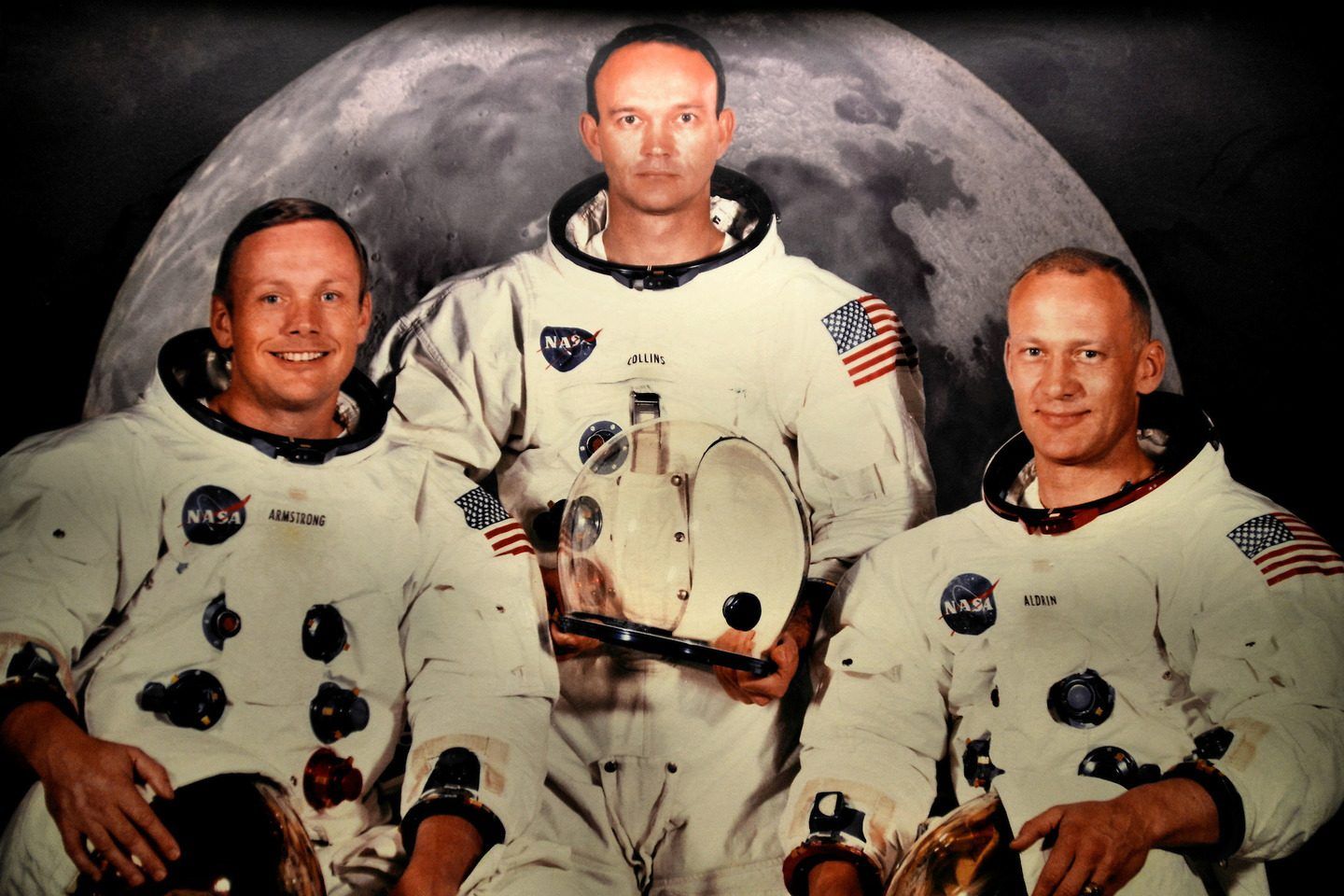Why Has NASA Not Sent Anyone to Mars?
Article by Jess Romeo February 10, 2021 (daily.jstor.org)
• In 1969, humans first set foot on the Moon. With each step, the entire universe seemed to open up. Where would NASA and its brave astronauts go next? “At the time of the Moon landing, it was generally expected that the United States would quickly go on to Mars,” writes aerospace engineer and founder of the Mars Society Robert Zubrin.
• As Zubrin relates in The New Atlantis: “Apollo 11 astronaut Michael Collins recalled thinking ‘perhaps I could help [NASA] plan a Mars mission’. Edgar Mitchell, the sixth man on the Moon, remembered feeling that ‘it wasn’t unreasonable to hope’ he’d be assigned to a Mars-bound crew. Gene Cernan, the twelfth and last man on the Moon, recounted with sadness the time that he finally faced the facts: ‘I’m not going to Mars.’”
• In the half-century following Apollo 11, NASA’s human spaceflight program stagnated. After 1972, no astronaut would stray further than 300 miles from Earth.
• People might blame this lack of human spaceflight on waning public support for the endeavor, lack of funding for NASA, or the fickleness of a democratic government during peacetime. But Zubrin is of a different mind. Historically, Zubrin argues, public support played a relatively small role in the space program in the 1960s. Lack of money is no excuse either. NASA actually has significantly more money today (adjusted for inflation) than it did when it first sent astronauts to the moon.
• As for that democratic “fickleness”, Zubrin points out that “many great things have been accomplished by democratic means during times of peace in the United States, including massive public works like the Erie Canal, the Hoover Dam, and the Interstate Highway System.”
• The real problem is what Zubrin calls a “change in mode of operation.” After Apollo 11, NASA lost sight of its clear, driving purpose. Human spaceflight projects became aimless and slow-moving. NASA has spent hundreds of billions of dollars over the past half-century with very little results. George H.W. Bush’s ‘Space Exploration Initiative’ in 1989 quickly collapsed. Barack Obama’s ‘Journey to Mars’ had no specific deadlines to accomplish anything. And despite establishing Space Force, the Trump administration’s ambitions were vague and Mars was never a top priority.
• Nowadays, Earth’s interaction with the Red Planet begins and ends with robots. But with people like Elon Musk vowing to colonize the Moon by 2026, perhaps the dream is closer than it seems.
• [Editor’s Note] The facts given in this article point to the causes for the NASA space program’s stagnation over the past fifty years, but not the underlying reason. The reason is that the deep state elite who presided over the creation of vast and competing secret space programs were incredibly greedy. They wanted to keep all of the advanced extraterrestrial technologies, to which they were exposed through their off-planet exploits, only to themselves. So in the 1950s, they set up the “civilian” NASA under the authority of the military industrial complex and invented a “Moon mission” using outdated rocket technology, while they continued to develop their secret space programs using advanced electromagnetic anti-gravity warp drive propulsion technology. Once the deep state put on their Apollo 11 show in 1969 and gave the world a bone to keep them quiet, they came up with other sinister ways to divert the public’s attention over the decades. Deep state agents used any excuse to discredit any real-world space program through the influence of a complicit media (just as they discredited the UFO phenomenon), paving the way for complicit legislators to give space activities the lowest priority. But don’t be fooled. There are millions of people currently residing on the Moon, Mars, and many other celestial bodies within and outside of our solar system.
 In 1969, humans first set foot on the Moon. With each step, the entire universe seemed to open up. Where would NASA and its
In 1969, humans first set foot on the Moon. With each step, the entire universe seemed to open up. Where would NASA and its

brave astronauts go next? As it turns out, nowhere. In the half-century following Apollo 11, NASA’s human spaceflight program stagnated. Even our closest planetary neighbor, Mars, seems like an impossible destination—but this wasn’t always the case.
“At the time of the Moon landing, it was generally expected that the United States would quickly go on to Mars,” writes aerospace engineer Robert Zubrin, founder of the Mars Society and advocate for human exploration of Mars. As Zubrin relates in The New Atlantis: “Apollo 11 astronaut Michael Collins recalled thinking “
‘perhaps I could help them [NASA] plan’ a Mars mission. Edgar Mitchell, the sixth man on the Moon, remembered feeling that ‘it wasn’t unreasonable to hope’ he’d be assigned to a Mars-bound crew. Gene Cernan, the twelfth and last man on the Moon, recounted with sadness the time that he “finally faced the facts: ‘I’m not going to Mars.’”

After 1972, no astronaut would stray further than 300 miles from Earth.
People might blame this lack of human spaceflight on waning public support for the endeavor, lack of funding for NASA, or the
fickleness of a democratic government during peacetime. Zubrin is of a different mind: “Each of these explanations is intuitively plausible,” he argues, “But […] taken together, they amount to a profound misunderstanding of how democratic peoples can do great things.”
Historically, Zubrin argues, public support played a relatively small role in the space program in the 1960s. “An analysis by historian Roger Launius found that […] lunar exploration in general almost never enjoyed majority support in contemporary polls.” Lack of money is no excuse either, Zubrin adds, as NASA actually has significantly more money today (adjusted for inflation) than it did when it first sent astronauts to the moon.
As for that democratic “fickleness,” Zubrin points out that “many great things have been accomplished by democratic means during times of peace in the United States, including massive public works like the Erie Canal, the Hoover Dam, and the Interstate Highway System.”
FAIR USE NOTICE: This page contains copyrighted material the use of which has not been specifically authorized by the copyright owner. ExoNews.org distributes this material for the purpose of news reporting, educational research, comment and criticism, constituting Fair Use under 17 U.S.C § 107. Please contact the Editor at ExoNews with any copyright issue.



